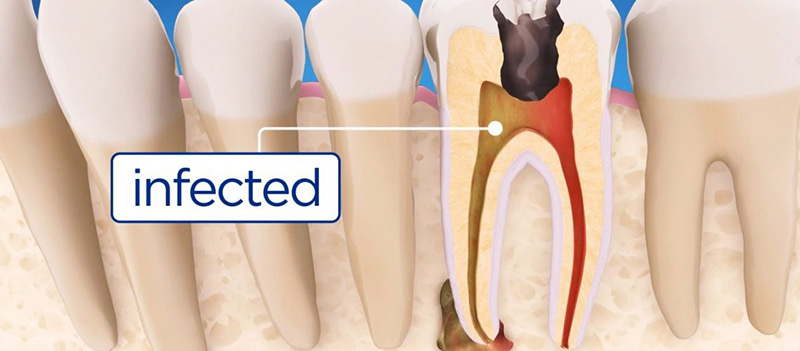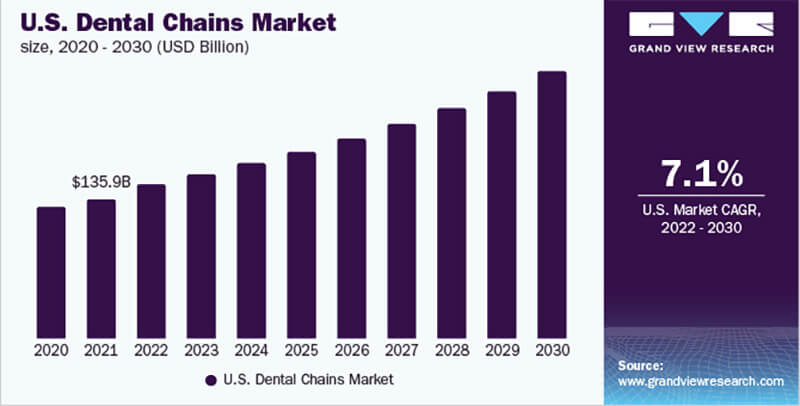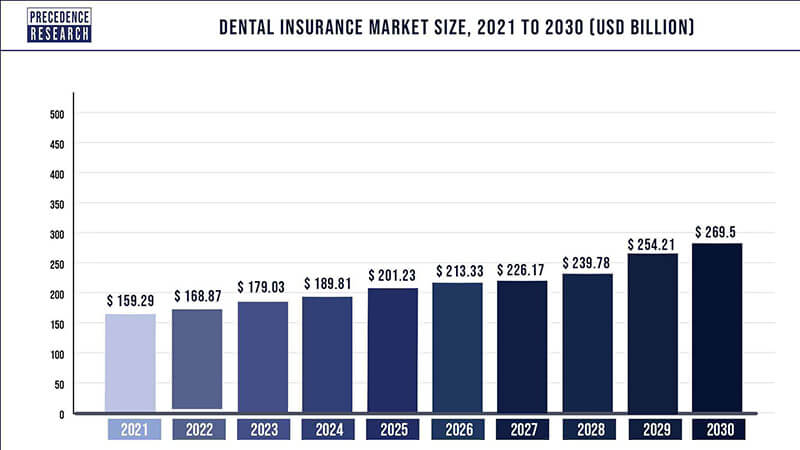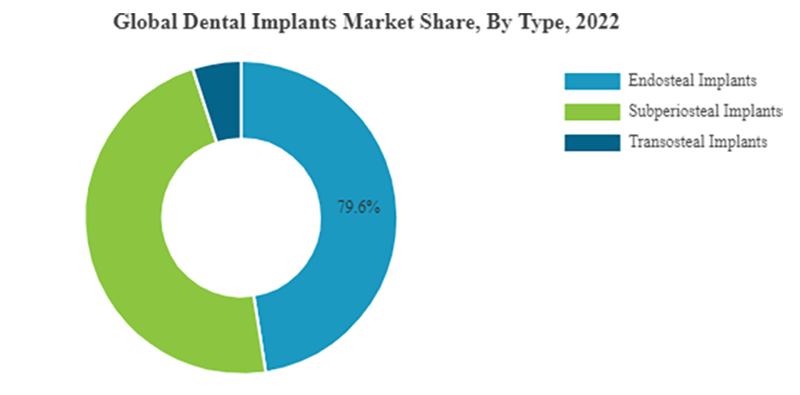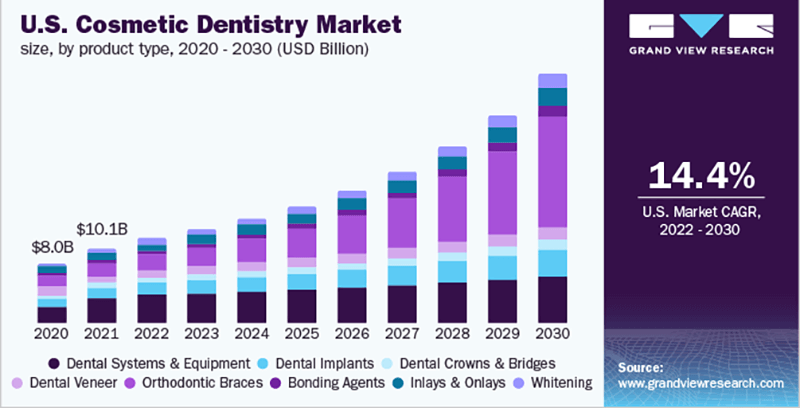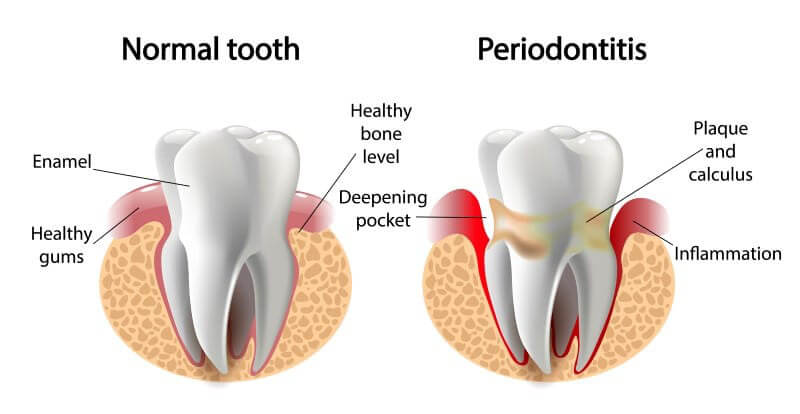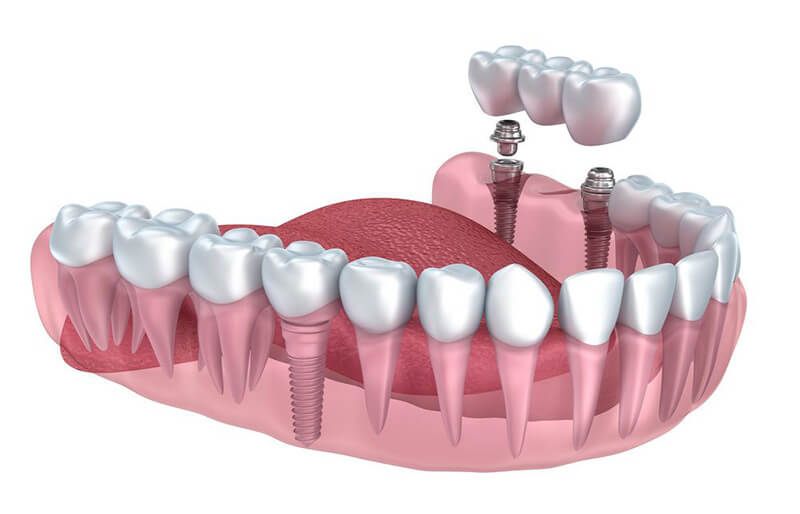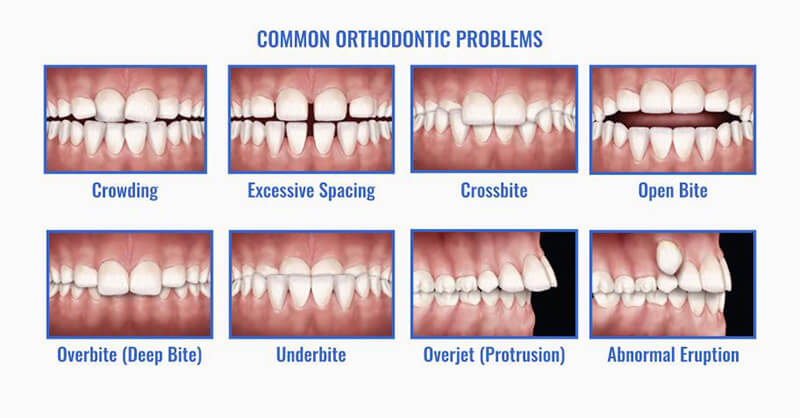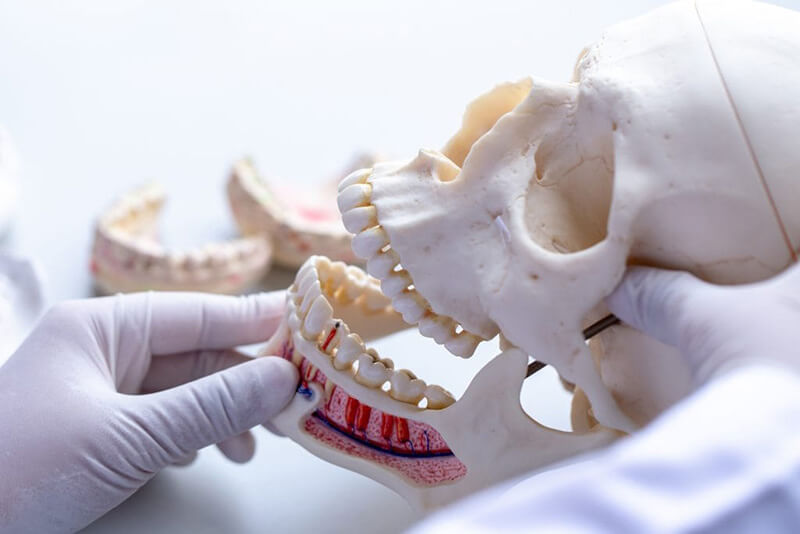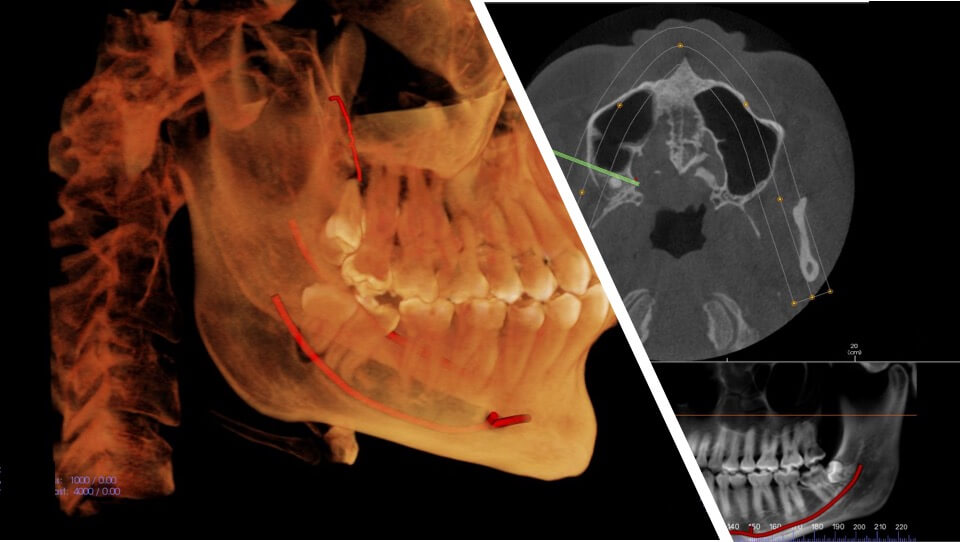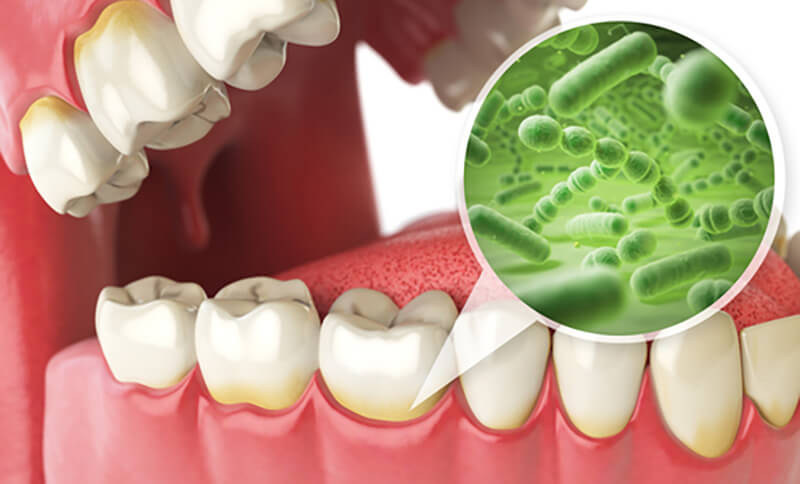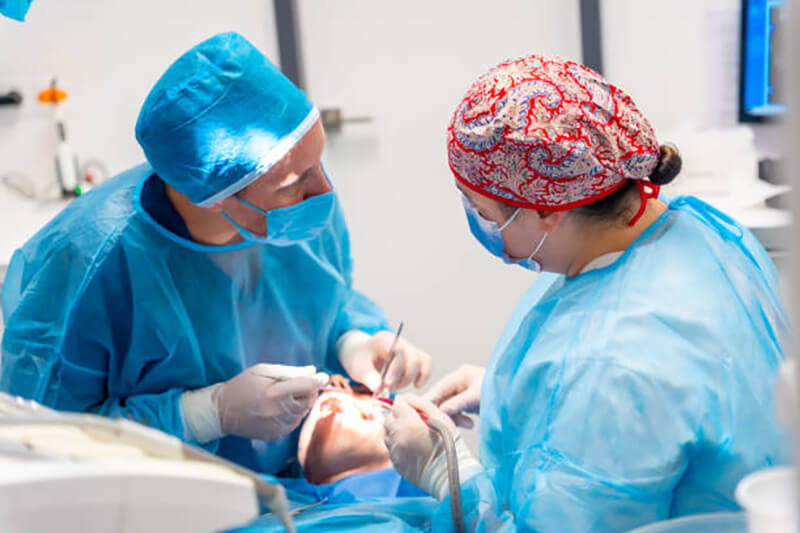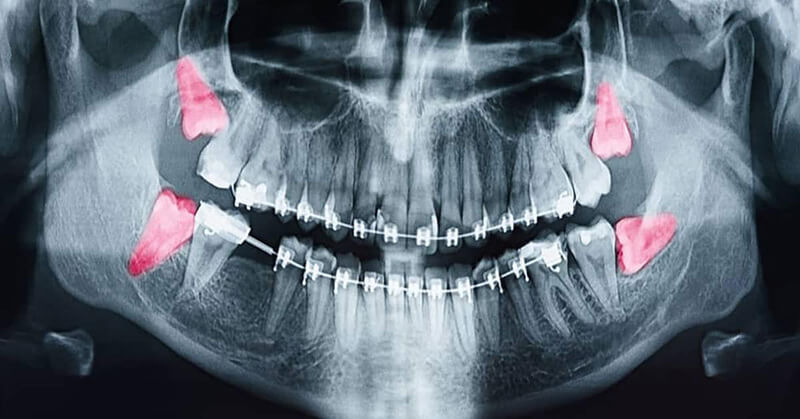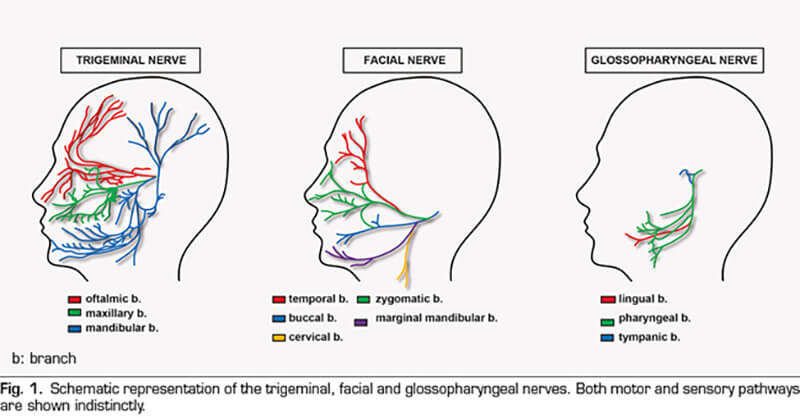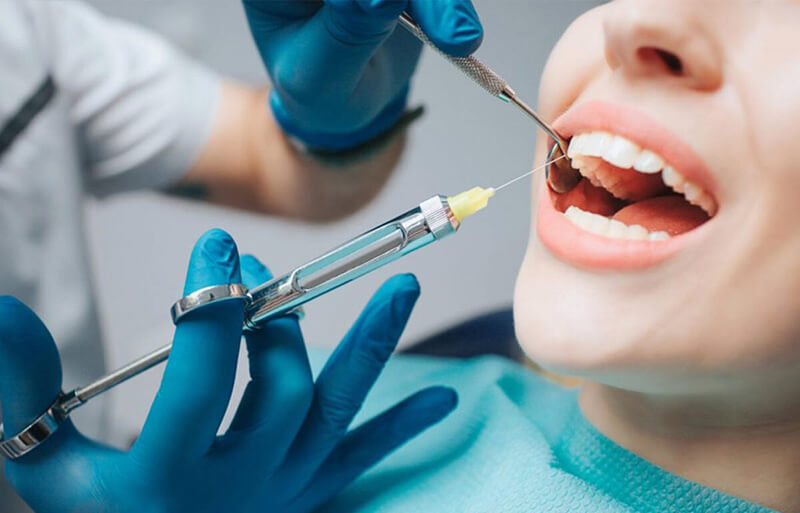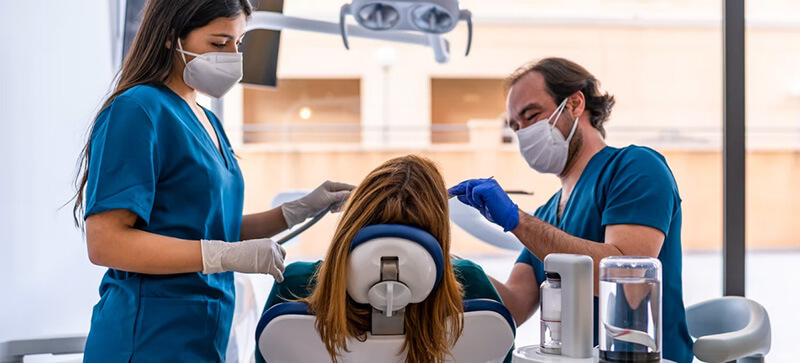Exploring The Different Types Of Dental Specialties in the United States
In the United States, a robust dental workforce of approximately 200,000 licensed dentists stands ready to serve the diverse oral health needs of the population. Within this dynamic community, a rich tapestry of specialties flourishes, each contributing unique expertise to the field. These specialists encompass a wide range of dental disciplines, including orthodontics, periodontics, endodontics, oral and maxillofacial surgery, pediatric dentistry, and more. Their primary mission is to collaborate closely with patients, crafting individualized treatment plans tailored to their specific needs. This personalized approach extends to creating a welcoming and reassuring environment, particularly for those who may experience dental anxiety or have concerns about their oral care journey.
To ensure high standards of care and safeguard the public, these dental specialties are formally recognized by the National Commission on Recognition of Dental Specialties and Certifying Boards (NCRDSCB). This recognition serves a vital purpose: to uphold the integrity of dental practice, foster the evolution of the art and science of dentistry, and elevate the overall quality of care delivered.
The 15 dental specialties recognized by NCRDSCB include:
Endodontist
Endodontics, a specialized branch of dentistry, carries the vital responsibility of diagnosing, treating, and preventing infections and injuries that affect the dental pulp, often referred to as the tooth's nerve. One of the well-known procedures in the domain of endodontics is the root canal, which is skillfully performed by an endodontist. This procedure involves the removal of infected or damaged dental pulp, followed by thorough cleaning and sealing of the tooth's interior. As per data provided by the American Association of Endodontists, the United States witnesses a remarkable volume of root canal procedures, with an astounding daily average of over 41,000. This astonishing frequency translates to an annual total exceeding 15 million root canal procedures carried out across the nation.
Endodontists are experts in preserving the health and function of teeth by addressing issues within the tooth's core, ensuring that patients can maintain their natural smiles and oral comfort.
Periodontist
Periodontics, encompasses a comprehensive spectrum of responsibilities. This specialty is dedicated to the prevention, diagnosis, and treatment of conditions affecting the soft tissues, commonly referred to as the gums, surrounding the teeth. Moreover, it extends its focus to the supporting structures, which include both the natural and artificial teeth and the underlying bone. According to data from the Kaiser Family Foundation, there are more than 5,663 periodontists currently practicing in the United States.
Prosthodontist
Prosthodontics is a specialized field within dentistry that revolves around the diagnosis, treatment, and restoration of oral function, particularly concerning cases involving missing or insufficient teeth and related oral and maxillofacial tissues. Prosthodontists employ biocompatible substitutes to address these issues comprehensively.
Distinguished by their expertise, prosthodontists possess the capability to repair natural teeth and undertake the replacement of missing teeth on a broader scale compared to general dentists. Their skill set includes the use of permanent solutions such as dentures and crowns (also known as caps) to replace teeth that have been lost or extracted, contributing significantly to the restoration and enhancement of oral function and aesthetics.
Orthodontist
Orthodontics and dentofacial orthopedics encompass the diagnosis, prevention, interception, and correction of malocclusion, which refers to the misalignment or improper positioning of teeth resulting in "bad bites." Furthermore, it extends its purview to address neuromuscular and skeletal abnormalities affecting the developing or fully developed orofacial structures.
Orthodontists play a crucial role in providing teeth straightening solutions. They achieve this by employing various methods, including the use of braces and other corrective appliances. These techniques facilitate the gradual movement of teeth through the bone structure, ultimately contributing to the alignment and harmonious positioning of the teeth and enhancing overall oral function and aesthetics.
Oral and Maxillofacial Surgery
Oral and maxillofacial surgery is a specialized field within dentistry that focuses on surgical interventions for a wide spectrum of conditions affecting the practical and visual facets of the hard and soft tissues in the oral and maxillofacial region. This specialty encompasses surgical procedures related to the face, mouth, and jaw, often addressing diseases, injuries, and defects. Furthermore, oral and maxillofacial surgeons are equipped to work with patients who have various concerns, including tumors, masses, and cysts occurring within the jaw structures. Their expertise extends to both restoring functionality and enhancing the appearance of these critical areas of the head and neck.
Oral and Maxillofacial Radiologist
Oral and maxillofacial radiology, also known as dental and maxillofacial radiology, merges with the discipline of radiology to focus on the intricate interpretation of images and data generated by various forms of radiant energy. These radiographic techniques are employed for the purpose of diagnosing and managing diseases and conditions affecting the oral and maxillofacial region, encompassing the face, mouth, and jaws. The expertise of oral and maxillofacial radiologists is indispensable in providing valuable insights into the intricate structures and issues within this vital area of the human anatomy.
Oral Medicine
Oral Medicine, a distinguished specialty within dentistry, assumes a pivotal role in the oral healthcare of patients with complex medical conditions. Its scope extends to the diagnosis and management of diseases, disorders, and conditions that have medical implications and impact the oral and maxillofacial region. An oral medicine specialist, also known as a stomatology doctor or dentist (stomatologist), undergoes additional specialized training and acquires extensive experience in addressing a diverse range of issues. These encompass the diagnosis and management of oral mucosal abnormalities, such as oral cancer, salivary gland disorders, temporomandibular disorders (pertaining to the temporomandibular joint), and facial pain arising from musculoskeletal or neurological conditions. This field occupies a unique intersection between medicine and dentistry, with oral medicine practitioners serving as vital "physicians of the mouth."
Oral Surgeon
Oral surgeons are widely recognized for their proficiency in performing wisdom tooth extractions. However, their scope of practice goes far beyond this routine procedure. These skilled professionals undertake a diverse array of specialized treatments and surgeries, addressing a wide range of oral and maxillofacial conditions.
Their expertise encompasses tooth extractions anywhere in the mouth, which may be necessary due to severe decay, trauma, or other dental issues to corrective jaw surgery (orthognathic surgery). In cases of accidents or facial trauma, oral and maxillofacial surgeons play a pivotal role in performing intricate surgeries to repair and reconstruct facial injuries. Moreover, they conduct biopsies to diagnose potential oral diseases, including oral cancer, when suspicious areas or lesions are identified.
These professionals are also skilled in bone grafting procedures, which are essential for augmenting bone volume in preparation for dental implants or for repairing bone defects resulting from trauma or disease. In essence, oral and maxillofacial surgeons are versatile and highly trained experts who contribute significantly to the treatment of diverse oral and facial conditions.
Oral and maxillofacial pathology
Oral and maxillofacial pathology is a specialized field that delves into the study of diseases affecting the intricate structures of the mouth, jaws, and related anatomical components. This encompasses a wide spectrum of conditions involving not only the mouth but also extending to vital structures like the salivary glands, temporomandibular joints, facial muscles, and the skin around the mouth.
The mouth is a complex organ with multifaceted functions, and it is susceptible to a diverse array of medical and dental disorders. Oral and maxillofacial pathologists play a pivotal role in comprehending, diagnosing, and managing these conditions, ensuring the overall health and well-being of patients by addressing issues that arise within this critical region of the body.
Orofacial Pain (OFP)
Orofacial Pain is dedicated to the comprehensive understanding, diagnosis, management, and treatment of pain disorders that affect various regions of the head and neck, including the jaw, mouth, face, and neck itself. This discipline plays a pivotal role in identifying and alleviating a wide range of painful conditions improving the quality of life for people experiencing discomfort and distress in these critical areas of the body.
Pediatric Dentist or Pedodontist
Pediatric dentistry, also known as pedodontics, represents a specialized field within dentistry that is uniquely tailored to the distinct needs of infants, children, and adolescents. This age-defined specialty offers a holistic approach, encompassing both primary and comprehensive oral healthcare, with a strong emphasis on prevention and therapy.
Pediatric dentists are highly trained to provide a wide range of oral health services, catering to the needs of children and teenagers, including those with special healthcare requirements. Their expertise extends to the early identification and management of various oral health concerns, such as dental decay, issues related to teeth eruption and positioning, as well as other conditions that may arise during this critical period of growth and development.
Dentist Anesthesiologists
Dental anesthesiology represents a specialized intersection of dentistry and the field of anesthesiology, dedicated to the meticulous management of pain, anxiety, and the overall well-being of patients undergoing a spectrum of dental, oral, maxillofacial, and related surgical or diagnostic procedures. This specialized discipline extends its expertise across the entire perioperative period, ensuring that patients experience optimal comfort and safety throughout their dental care journey.
Dental Public Health (DPH)
Dental Public Health serves as a critical para-clinical specialty within the field of dentistry, primarily concerned with the preclusion of oral diseases and the advocacy of oral health within communities. This specialized discipline plays a pivotal role in preventing and managing dental diseases while actively promoting overall dental well-being through organized community initiatives.
Central to the mission of Dental Public Health is the coordination of efforts that encompass dental research, dental care delivery, and public health strategies. By working collaboratively within communities, professionals in this field are dedicated to improving oral health outcomes on a larger scale, thereby benefiting the overall health and well-being of individuals and populations.
Dental Hygienist
A dental hygienist is a licensed healthcare professional trained to provide essential oral health care services to patients under the guidance of a licensed dentist. Their primary focus is on preventive oral care, patient education, and assisting with dental procedures. Their primary responsibilities include oral health assessments and examinations, teeth cleanings to prevent gum disease and decay, dental X-rays, educating patients on proper oral hygiene practices, administering treatments like fluoride applications and dental sealants, performing scaling and root planning for patients with gum disease, assists dentists during various dental procedures, maintains detailed patient records and treatment plans, and promotes oral health awareness and regular dental check-ups to patients and the community.
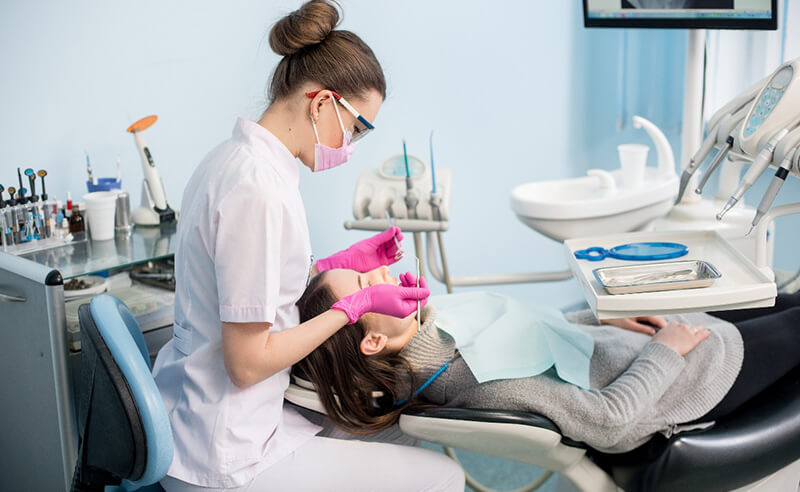
Dental hygienists are essential members of the dental care team, working alongside dentists to ensure that patients receive comprehensive oral health care and education to maintain healthy smiles.
Dental Assistant
A dental assistant plays a crucial role in ensuring the dentist's efficiency in delivering high-quality oral health care. Their responsibilities include providing patient care and support while the dentist conducts check-ups and procedures.
